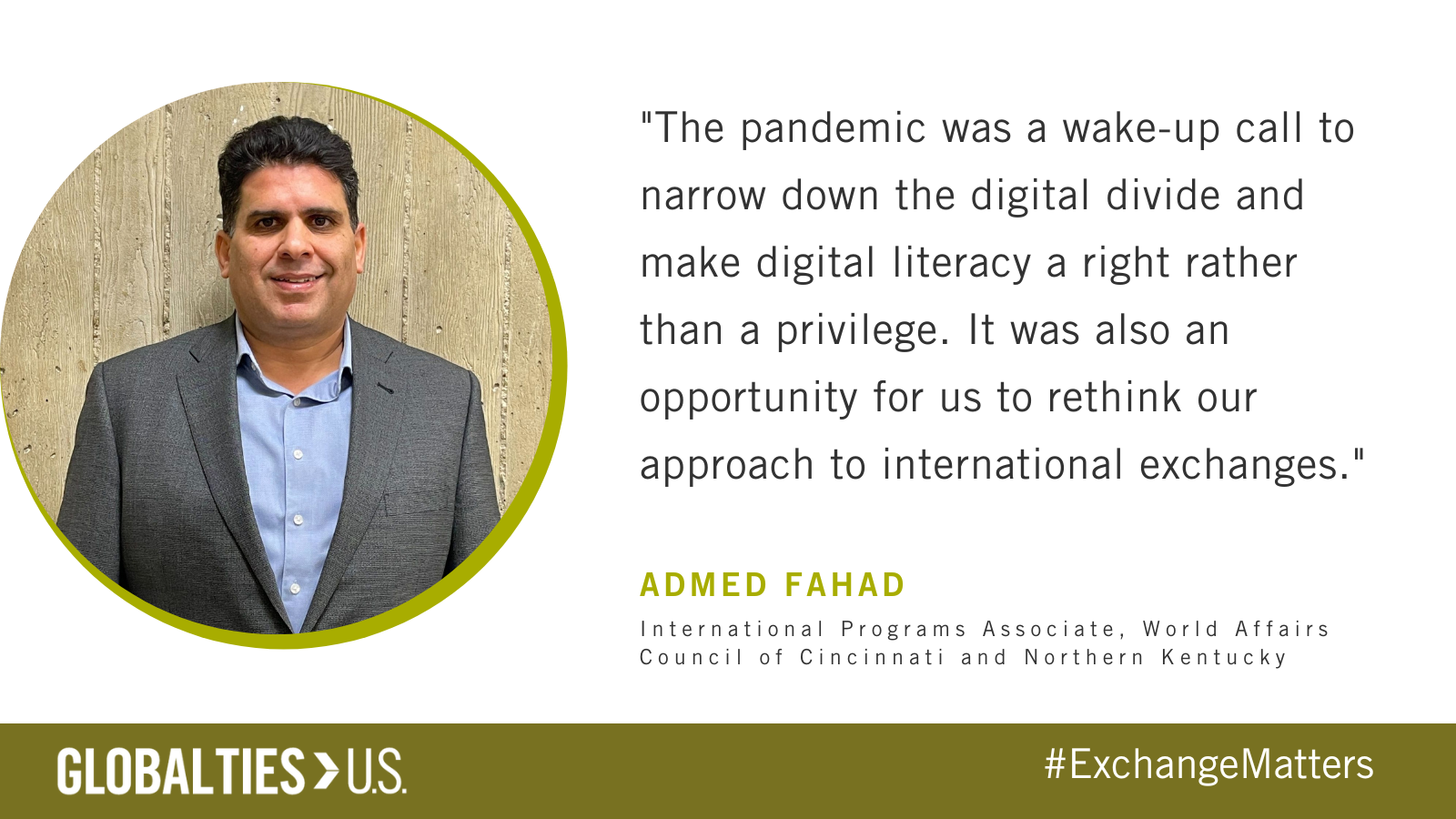By Ahmed Fahad, International Programs Lead, World Affairs Council – Cincinnati & Northern Kentucky

When the COVID pandemic hit in late 2019, so many aspects of life changed, among which was international travel. This led to the complete transition of the International Visitor Leadership Program (IVLP) into a virtual environment. The virtual implementation of IVLP has proven that technology can provide a forum for dialogue, and while so many success stories can be told, there are some aspects of in-person programming that cannot be replicated in an online environment. However, both online and in-person modes of implementation should be equally considered for two reasons.
First, international exchanges are not only about assimilating the content-based knowledge of the program’s meetings. There are also intangible cultural components throughout each of these exchange programs, such as face-to-face small talk, home hospitality, and the shared experience of attending in-person cultural visits; many of these intercultural interactions were either missed or absent during the pandemic in IVLP-online programming. After we resumed in-person implementation earlier this year, I learned to never let such interpersonal moments go unnoticed or be considered marginal. When the World Affairs Council of Cincinnati and Northern Kentucky resumed in-person programming, both international visitors and local professional resources appreciated the opportunity to have met in person, something that was previously taken for granted. For example, after conducting in-person meetings, I noticed that social media posts about the events had a greater focus on aspects related to intercultural interaction, such as souvenir exchanges and fun facts highlighting the participants’ cultures, rather than on topics and discussions directly covered during the workshops. This doesn’t mean that the workshops weren’t important, but simply that in-person connection was missed.
Another lesson learned from the pandemic was how to effectively use technology. Technology has become an essential part of programming and played a crucial role in keeping us all connected. During the pandemic, it was like a blessing in disguise! Even now, virtual and hybrid programming allows us to engage individuals who may be unable to travel. This, in turn, has contributed to increased access to IVLP, making its programming more inclusive than ever. Now, we see participants in virtual IVLP projects that are from countries where it would have otherwise been difficult to travel and participate.
All in all, whether virtual or in-person, international exchanges keep moving forward. The pandemic was a wake-up call to narrow down the digital divide and make digital literacy a right rather than a privilege. It was also an opportunity for us to rethink our approach to international exchanges. While resuming in-person IVLP programming is such a joy, more work needs to be done to incorporate technology into its implementation and to seek innovative ways to fill in any gaps that might occur during in-person programming.
